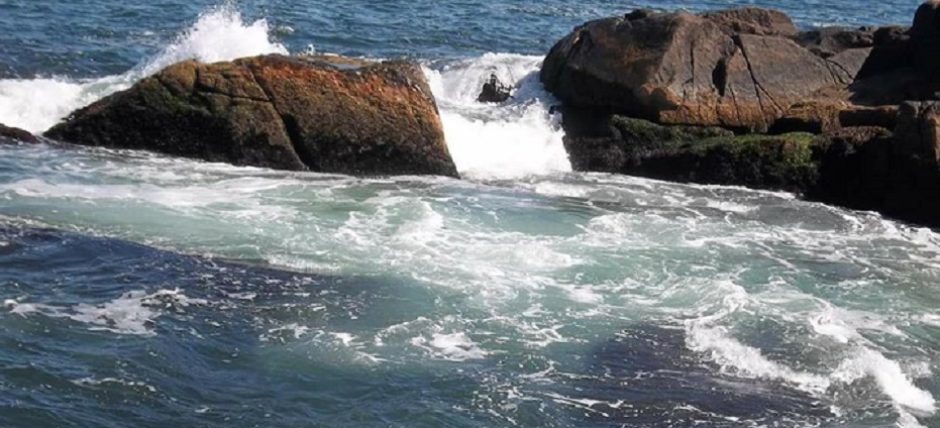Unhinged from the ceiling, the gray moth was wind-scatter by Tuesday—then nothing left.
Not even a frame for a sentence-shed.
Last winter’s bicycle spokes catch a hand.
Everyone in a hurry to take the remote—until then.
Orphic chords scrambled us through artery-streets in need of better armor.
Behind the TV, I’m growing pieces of music—shaken in a paper bag.
We could live on the same channels during commercials, eat the same cereal.
Now that we’ve grown new considerations for purple, for melody—for the play.
The theatre: misplaced and fuzzy.
One adjusts and can lurk be at the bottom of the issue—the fairy tale lesson of the castle and boat.
Don’t be afraid to go alone, sorry for your tragic becoming.
Whom have you told?
Bruised humans are playing shipwreck-bumper cars to feel something, hurt someone.
One is razoring shins with trousers rolled by the carousel’s sad-brown-eyed ponies.
The scent of iron can satisfy like a fact.
Lying on a bed of raven hair, Eurydice drowns images of a hand that didn’t pull her to the surface.
Look at what we’ve done to each other while no one else was looking.
Spear fishermen risk slicing their backs on barnacle-laden rock that claims the disappearing shoreline.
It’s all prehistoric—the need for slowing everything down.
Cacophony unfurls the sea’s lapis lazuli, collects declarations that might or might not be expunged.
The cardinal husband and wife may have gone missing.
They only live two or three years, one of us said.
It’s not your fault the winding bitterroot choked out their apple tree.
Next year the old man will chainsaw the branches and trunk in perfect increments.
It’s recommended that you stay behind the dilapidated barn with the nervous horses that might get thinned out.
Until you hide the rental car, devour the elixir that could sequester you in scriptures, temporarily.
You’ll regenerate completely, eventually.
Like the four-arm pink starfish Eurydice stole from the sea.
It’s not a four-leaf clover, the ex-lover said.
There’s no aquarium here.
The bath where I read Plato should suffice.
Where will you bathe?
The sea, of course.
Indigo nights with opaque moonlight.
The gelatinous sea animal’s house detaches, but there is always a new friend.
The Book of Elucidation abandoned because there were too many pages.
Press this number to become curious again, enamored with nothing but stage—
not your obsessions, possessions, aggressions—those meticulously-ingrained habits.
Press this number when you trampoline uncontrollably out of your skin.
This number if you’re feeling particularly psychotic.
The sky is untangling its grammar.
Intricate sentences will be diagrammed before erased.
We must go quickly.
Pack essentials in your torn knapsack of copious notes, your fanciful observations.
That manuscript you may never finish.
No promises.
Hurry!
It’s dangerous—and stunning.
Whom have you told?
Night moves the clouds; swallows the stars we’ll name for the dead while drinking cheap whisky.
None of us owns a flashlight, wood for a fire, categorical convictions.
The hours before sunrise stretch infinity, spin us sublime—
no longer overwhelmed by how limitless we’ve become.
Eurydice falls asleep in E Minor.
Unlike the alchemist, we wouldn’t give up our families—sell food for magic.
There were many worlds within the world and outside of us, dimensions of sorrow.
To measure all of them might take eternity’s windfall, truculent knowledge.
Thirteen Egyptian bulls carried the fallen troops—transformed almost everyone.
The stories became us, pages we’d sell for more bee nectar, more Himalayan blue poppies.
My mother looked in the mirror and became rain.
The house grew wings last night.
In his sleep, the beloved spoke the talk of strangers.
A boy traded his trove of baseball cards for clarity.
The pillars of some worlds would crumble.
Some days drew forever into themselves.
The papyrus folded into an origami starling that couldn’t fly.
The lies professed were to maintain a semblance of normalcy while those around us schemed to sell the country.
Orpheus barters his glass lyre for an acoustic guitar; electric didn’t suit him—so he can woo Eurydice back for eternity.
He strums his tapestry of poetry while silver birches drape frayed ribbons of moonlight.
Eurydice never wakes up.
Every tragic hero has the epiphany that no one can save him but himself.
Orpheus sat and wept—primal sounds under temple stones.
It’s better to ignore displays of inner lives turned inside out.
No one ever knows what to say.
The spotlight tightens around Orpheus’ neck when his guitar-playing arm is shorn.
Note: those who visit from the underworld can’t bleed.
Some say the gods were jealous of Orpheus’ heart wrenching songs.
The writers look worried.
Most of the Chorus remain calm.
Picture-window memories can be cleansed from mud and bloodshed while we wait for our subject to settle down.
Filthy blackboards thrown out definitively when the new story boards arrive.
A hero from a different tragedy carries Eurydice without waking her,
back to the afterlife before the deadline.
Redemption has its costs.
Consciousness can reset over new chasms we’ll learn to navigate.
Someone should reassemble the assemblage of melodies, sequenced shards—
attach frenetic syllable-phrases to decrescendo.
Remind us what we lost, what was carelessly forgotten:
all that longing for something more.
